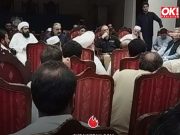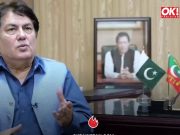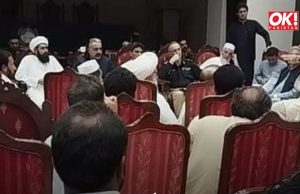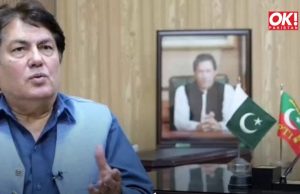ISLAMABAD: On Tuesday, Chief Justice of Pakistan (CJP) Qazi Faez Isa said that falsehoods were becoming increasingly popular on social media.
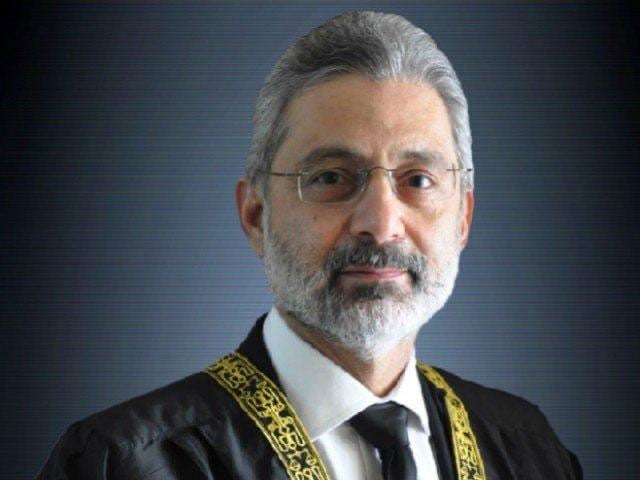
Leading a three-judge bench hearing on a petition challenging the Federal Investigation Agency’s (FIA) notifications to journalists, the Chief Justice (CJP) made the observation, “The more you lie, the more it sells on social media.”
The CJP asked whether any of the applicants for media rules, including Advocate Haider Waheed’s plea, were present in court during the hearing.
The chief justice summoned the attorney general of Pakistan (AGP) to the dais and inquired whether a plea like the one Advocate Waheed submitted did not constitute an abuse of the legal system.
In response, the AGP declared that it was unquestionably a procedural abuse.
The SC ought to put all parties involved in this application on notice, according to CJP Isa. The AGP was in favor of giving the movers a notice.
Representing the SC Press Association, Barrister Salahuddin informed the court that the case was not urgent.
CJP was informed that Advocate Waheed want to drop the application pertaining to media regulations when he inquired about his whereabouts.
Advocate Waheed had not even shown up for court, according to CJP Isa. “Would this application protect free speech or impede it even more?” he asked.
The chief judge questioned the identity of the application’s promoters.
“What grounds did you have for filing this application since 2022? Have those goals been achieved? He inquired.
The CJP observed that although some applicants were from Islamabad, others were from Chakwal.
What unified these applicants, and what was their shared interest? The chief justice asked.
The CJP noted that the media was engaging in a significant amount of “selective reporting,” noting that it would not be reported that the six plea seekers had vanished.
“We said we would manage our YouTube channel for that reason.”
According to Barrister Salahuddin, applications pertaining to matters of public interest cannot be withdrawn.
Barrister Salahuddin was questioned by the CJP if they had come to an out-of-court agreement with these individuals.
In response, Barrister Salahuddin stated that they were a journalistic group and did not have the resources to come to such a resolution.
It wasn’t required to have money for this purpose, CJP Isa said.
“It might also be said to promote my news well going forward.”
The chief judge asked if there was anything else necessary to discuss. Barrister Salahuddin brought up journalist Matiullah Jan’s case.
The CJP noted that since there was video evidence of Matiullah Jan’s kidnapping, he would consider his case to be closed.
The chief judge asked why the government had not placed an advertisement in the press stating that it was searching for these individuals.
He went on to say that the government would get an order it did not like if it did nothing.
The CJP noted that he had just received false reports claiming that his wife was seated beside him for the whole court session.
He said that it would be claimed that his spouse hadn’t made a denial.
“How will the information that the CJP’s wife was seated in a formal meeting be received?”
The chief judge questioned if the SC should arrest, imprison, and issue a contempt notice to individuals who disseminated this incorrect information.
He also asked if there was any financial benefit to greater reblogging of a content and likes.
The CJP further said that if a journalist was discovered to be dishonest, their membership would be revoked.
Did the journalists take any action against their members, the chief judge questioned.
“We demonstrated the process for you in our organization. You ought to follow suit.
In response, Barrister Salahuddin said that a journalist of such nature might receive a show-cause letter and have their membership revoked.
He also said that Pakistani TV channels were unable to continue airing in the UK due to severe fines associated with the country’s strict defamation laws.
Although neither the petitioners nor their attorney showed up in court, the SC judgment said that there was a desire to withdraw the application pertaining to media regulations. It further stated that although the AGP had denied this assertion, the application claimed that the government was investigating media restrictions directly.
The SC requested written submissions from the parties and called the proponents of the media regulations application in their individual capacities. It postponed the hearing indefinitely and sent notice to the applicants.






